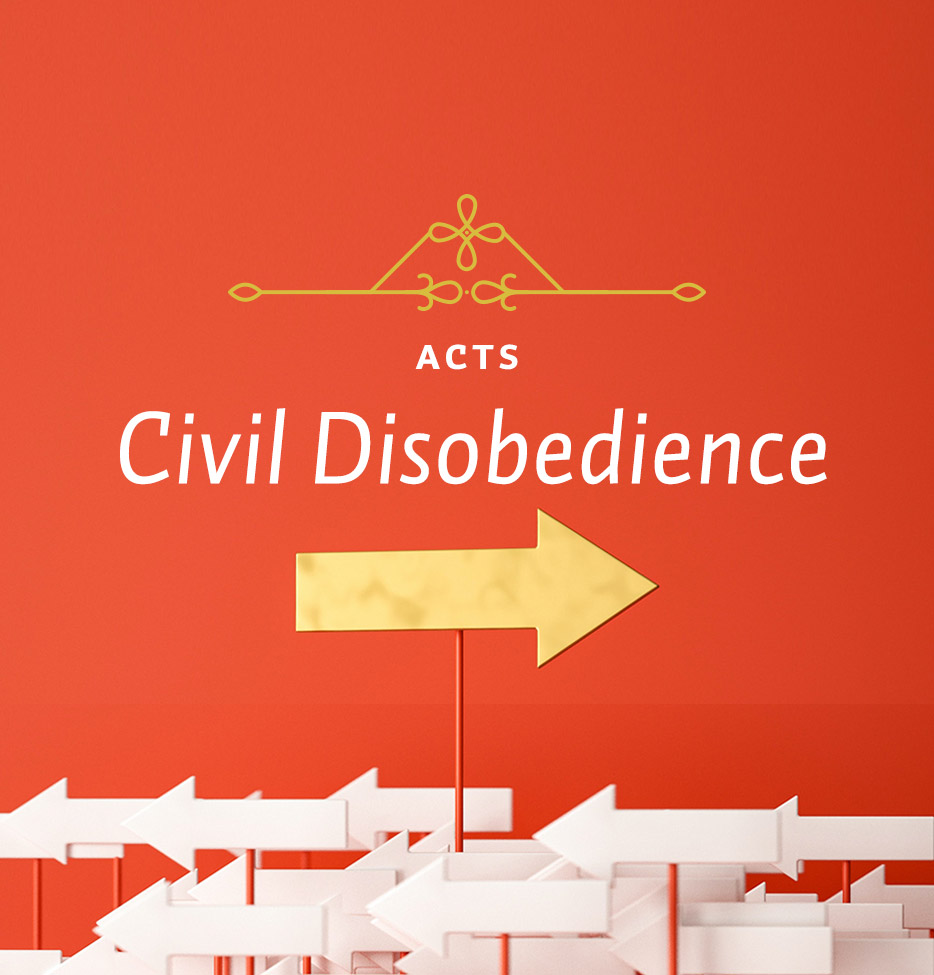God had used Peter and John to heal a crippled beggar, and the leaders of Israel were unhappy with the miracle. So they arrested the disciples and brought them before the Sanhedrin. “By what power or what name did you do this?” they demanded. “Name” stands for authority. So they were actually asking, “By what authority did you accomplish this miracle?” The disciples answered, “It is by the name of Jesus Christ of Nazareth, whom you crucified.” This sentence is the theme of the chapter, and it carries us into this new section. There is a fourfold sequence.
1. The question: “By what power or name did you do this?” (v. 7).
2. The answer: “By the name of Jesus Christ of Nazareth” (v. 10).
3. The application: “There is no other name under heaven given to men by which we must be saved” (v. 12).
4. The response: “We must warn these men to speak no longer to anyone in this name” (v. 17).
The leaders knew that they could not deny that the crippled man had been healed. They would be a laughing stock in Jerusalem if they tried to do that. But they thought they could contain the damage to their position by a naked exercise of authority. So, turning to Peter and John, they said, “Whatever you do, don’t preach or teach any longer in that name.”
So the issue was joined, as it is always joined when the rulers of this world set themselves against the Lord God Almighty and His Christ. The issue is authority. On the one hand, there is the authority of Jesus Christ, who commanded the apostles to be His witnesses. On the other hand, there is the authority of the rulers who frequently set themselves against Jesus. The rulers said, “Don’t preach.” But Peter and John replied, “Judge for yourselves whether it is right in God’s sight to obey you rather than God. For we cannot help speaking about what we have seen and heard.”
From the point of view of the Sanhedrin it is clear that there was a very major problem. Not long before this, Jesus had created a problem. And now here were more preachers and workers of miracles just like Him. The text expresses the Sanhedrin’s view of the problem when it says, “They saw the courage of Peter and John and realized that they were unschooled, ordinary men” (v. 13).
To call them “unschooled” did not mean that they were ignorant. There was a basic knowledge of the Old Testament Scriptures that was imparted to most men in the synagogues, and Peter and John certainly had that fundamental Jewish education. They both wrote letters to the churches, which we have in our New Testament, and they are letters of ability, exhibiting considerable knowledge. The gospel of John especially is a great literary achievement, and Peter’s letters radiate a warm, winsome vitality. Besides, the apostles had spent three years in the best seminary the world has ever seen. They had been traveling with the Master Himself, and He had taught them not only by precept as He unfolded the Scriptures to them, but by example. He modeled the Gospel for them. They were slow learners, just as we would have been. But they were on the way.
So when the text says that they were “unschooled,” it does not mean that they were uneducated; it only means that they had not been to the rabbinic schools. To have gone to the rabbinic schools was like having gone to an approved university. If you wanted to be someone other people looked up to, such as a judge or a commanding political figure, this was the way to do it. But, of course, Peter and John had not.
Yet here was the remarkable thing. These two fishermen, these rather rough characters, stood before the Sanhedrin without fear and gave the testimony we read in the first section of the chapter: “Rulers and elders of the people! If we are being called to account today for an act of kindness shown to a cripple and are asked how he was healed, then know this, you and everyone else in Israel: It is by the name of Jesus Christ of Nazareth, whom you crucified but whom God raised from the dead, that this man stands before you completely healed.” They quoted from the 118th Psalm. “He is ‘the stone you builders rejected which has become the capstone.’”
They concluded: “Salvation is found in no one else, for there is no other name under heaven given to men by which we must be saved.” This was brilliantly done. So I am not at all surprised that the rulers were aghast when they saw both the rhetorical skill and boldness of the apostles. The authorities were ready to run over them like a steamroller. But these men were not the kind who were easy to run over.






